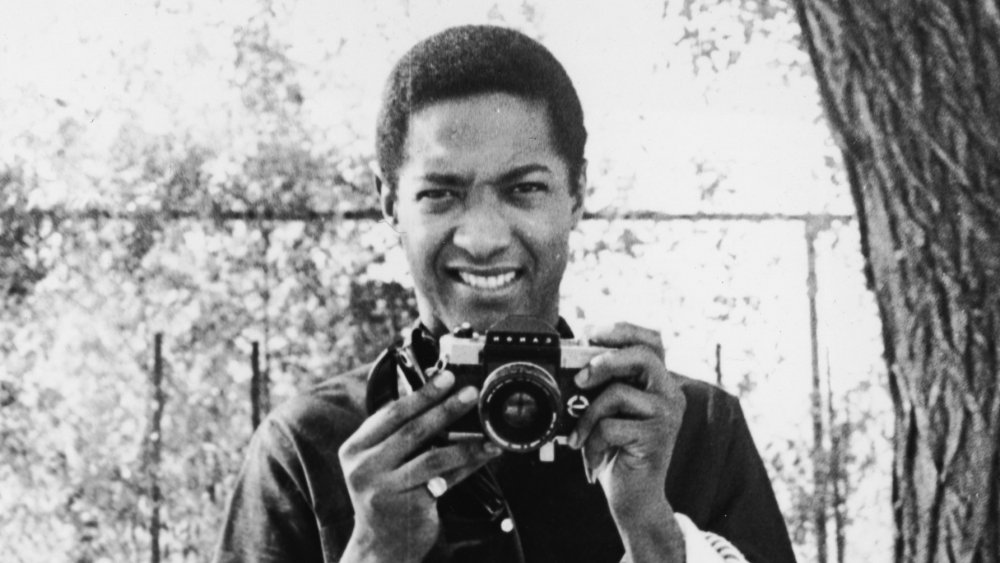Here's How Much Sam Cooke Was Worth When He Died
To say that Sam Cooke met a sad end would be to miss a perfect opportunity to use the word "tragic." Cooke was best known as a pioneering singer who ushered in a completely new style of music: As Biography tells us, some call him the "father of soul music." Cooke was popular enough that his first hit, "You Send Me," actually knocked Elvis Presley's "Jailhouse Rock" off the top of the charts in 1957. This was only the first in a string of hits such as "Chain Gang" and "Sad Mood."
Unfortunately, the singers' run was cut short by his mysterious death. In the small hours of December 11, 1964, the 33-year-old Cooke was shot to death at the Hacienda Motel, in Los Angeles. Precisely what happened is a mystery. Reportedly, Cooke had ended up in the motel with a woman called Elisa Boyer after a night of drinking, but had some sort of altercation with her. This escalated to a situation where the manager shot Cooke, in what was eventually ruled justifiable homicide.
Poor Cooke definitely died before his time, but he was also an extremely prolific artist who had tons of hits under his belt. Let's take a look at how much he was worth when he died.
Sam Cooke's net worth is ... difficult to determine
How do you define the net worth of an artist who died in the 1960s, and was likely yet to reap the biggest monetary rewards of his career? With extreme difficulty, that's how. The premier net worth guesstimation site, Celebrity Net Worth, doesn't even have an entry on Sam Cooke. Other net worth estimates are all over the place, ranging from $1 – $5 million, but these are less than credible. So we'll have to do a bit of extrapolation.
Cooke had 29 songs hit the Billboard Top 40, per AllMusic, some of which sold millions of copies. Four of those landed in the Top 10, per Billboard. He sits at No. 4 on Rolling Stone's list of the 100 Greatest Singers of All Time, right between John Lennon and Elvis. While none of this gives you an exact number, it gives you an idea of the plane of success Cooke existed on.
Regardless of how much wealth this garnered him was when he met his untimely end, Cooke would probably have ended up a whole lot richer before long. He was a great businessman who had negotiated himself a superb record deal that involved rights to his own master tapes for 30 years and hefty advances. What's more, he was very close to arguably the most famous song of his career, as his posthumously released song, "A Change Is Gonna Come," went on to become an anthem for the civil rights movement.

